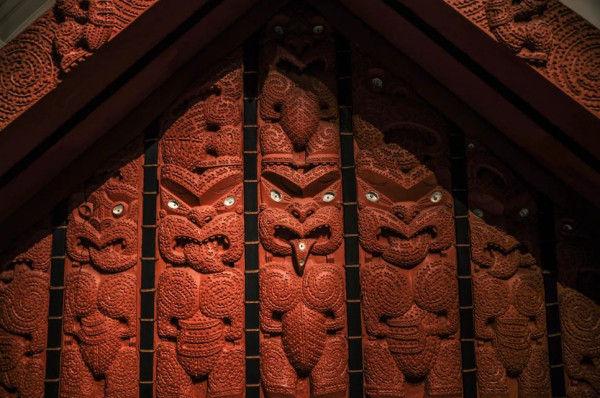Building our capability to engage and work with Māori
Standards New Zealand is making efforts to ensure balanced representation on development committees, so standards represent the needs of all Aotearoa New Zealand’s diverse people and their needs.

Māori carvings in Auckland
Balance is at the heart of standards
Standards development committees are a critical element in the creation, review and adoption of standards. Experts representing all interested parties work together to develop, and seek feedback on standards content. This inclusive process leads to standards solutions that are robust, technically accurate, trusted and credible.
Standards New Zealand manages the committee establishment process, including seeking experts to be part of these committees. Our job is to ensure committees have balanced representation of stakeholder interests and the appropriate diversity of skills, knowledge, and experience relevant to the standard being developed. Along with our gender action plan we are making a commitment to greater inclusion of Māori and Pasifika viewpoints.
Why Māori views matter
Recently we have been putting extra effort into encouraging Māori experts to join standards development committees. Māori are the tangata whenua of Aotearoa New Zealand, and the Te Tiriti o Waitangi (Treaty of Waitangi) established a foundation of partnership, mutual respect, cooperation, and good faith between Māori and the Crown. As part of the Ministry for Business, Innovation and Employment, Standards New Zealand has a responsibility to enhance Crown/Māori relations as well as an opportunity to ensure that Māori interests and needs are represented and catered to in the standards and conformance system.
Our work to increase Māori representation on committees aligns with the following values:
- Kotahitanga: Māori unity and a shared sense of belonging.
- Whanaungatanga: Forming and maintaining relationships and strengthening ties between kin and communities.
- Kaitiakitanga: Guardianship of natural resources and the land.
- Manaakitanga: Showing respect, generosity and care for the people who use services, for their whānau and communities, and for their information and stories.
- Tino rangatiratanga: Māori people’s self-determination, ownership and control.
How can Māori views shape standards?
With Māori representation, standards development committees can take culture-specific requirements into account and consider the challenges and opportunities unique to Māori (in terms of culture, people and the land). Primary industries and the building and construction industry employ a high proportion of Māori. As well as being two of Standards New Zealand’s priority sectors where standards play a key role in regulation or enabling export, they are also areas where there may be technical experts who can, in the immediate term, help improve Māori representation and appreciation of te ao Māori in the standardisation process.
An excellent example of how te ao Māori and te reo Māori inclusion is fundamental to better and inclusive standards can be seen in NZS 8134:2021 Ngā Paerewa Health and disability services standard developed in 2021. This incorporated tikanga and kaupapa Māori elements for culturally appropriate health care provision.
NZS 8134:2021 Ngā Paerewa Health and disability services standard
Some activities we have planned are:
- Identifying Māori organisations, experts and relevant communication channels that we can better use to reach potential committee members and to communicate the value of participating in standardisation. We will also use these when consulting on draft standards to help ensure the cultural appropriateness of the content of standards has been considered.
- Better communicating the value of participating in development committees. There is value to the individual involved, to their wider community as well as to New Zealand.
- Updating standards development process documents and information given to committee members to be more inclusive of te reo and te ao Māori considerations (as well as other types of inclusivity).
We welcome expressions of interest from anyone looking to get involved in standards developments. While there are some requirements for different types of standards committees, you can find out more information and tell us about yourself and your experiences through our expression of interest form here:
